Critical Thinking VS Critical Competence: Critical Reading
DOI:
https://doi.org/10.24310/isl.vi18.15839Keywords:
critical competence, Europan Union competences, critical thinking, fake news, reading competenceAbstract
Critical thinking is not a current concept. However, it is taking on special relevance in today’s society thanks, in part, to the problem posed to human beings by fake news, and, by extension, it is beginning to be addressed systematically in educational centers. Similarly, critical thinking also affects the understanding of the information received from an emotional point of view, as it helps to be more objective and avoid misinterpreting both oral and written messages. In this sense, critical thinking is evolving into competence as the ability to put it into practice; these are parallel concepts to the concept of reading comprehension with respect to reading competence. In addition, most of the tests that have been used to measure critical thinking are translations from English, which, in some cases, are ambiguous and confusing to interpret in Spanish. As a result, understanding what is read is critical for developing a solid and solvent critical competence. The present study is a review of the scientific literature that aims to discern what critical thinking is, which is included as one of the skills to be developed with students according to the European Union. It provides a basis for the definition of critical competence as well as its dimensions, its relationship with reading, and its role in the classroom.
Downloads
Metrics
Publication Facts
Reviewer profiles N/A
Author statements
- Academic society
- N/A
- Publisher
- EduVerso, Universidad de Málaga
References
Abdullah, N. binti, Niazi, J. A., Idris, R. G., & Muhammad, N. H. binti M. (2022). Socratic Questioning: A Philosophical Approach in Developing Critical Thinking Skills. Al Hikmah International Journal of Islamic Studies and Human Sciences, 5(4 Special Issue), 143-161. https://doi.org/10.46722/hikmah.v5i4g
Akapo, M. A. (2021). Critical thinking; the father of all disciplines. Integrity Journal of Arts and Humanities, 2(4), 70-76. https://doi.org/10.31248/IJAH2021.036
Al-Ahmadi, F. M. A. (2008). The Development of Scientific Thinking with Senior School Physics Students. https://theses.gla.ac.uk/241
Alexandrova, A., & Haybron, D. M. (2016). Is construct validation valid? Philosophy of Science, 83(5), 1098-1109.
American Psychological Association (2013). Guidelines for the undergraduate psychology major (Version 2.0). http://www.apa.org/ed/precollege/about/psymajor-guidelines.pdf
Arifin, S. (2020). The Role of Critical Reading to Promote Students’ Critical Thinking and Reading Comprehension. Jurnal Pendidikan dan Pengajaran, 53(1), 318-326.
Ashimova, N., & Turekhanova, A. (2022). Development of critical thinking of students in the learning process. InterConf, 13(109), 110-115. https://doi.org/10.51582/interconf.19-20.05.2022.013
Aykaç, B., & Aslan, A. E. (2022). Developing ?stanbul Critical Thinking Scale. Hayef: Journal of Education. https://doi.org/10.5152/hayef.2021.21031
Azizi, M., Fallah-Zivlaee, S., Králik, R., & Miština, J. (2022). Gender and its role in critical thinking and critical thinking strategies used by EFL learners. Revista de Investigaciones Universidad del Quindío, 34(S3), 45-60. https://doi.org/10.33975/riuq.vol34nS3.997
Bachelard, G. (1994). La formación del espíritu científico. Siglo XXI.
Baghana, J., Bondarenko, E.V., Blazhevich Y.S., Zubritskij, O. A., Slobodová Nováková, K. (2020) . The importance of Cultural Seme in the Semantics of Different Language Units for Political Texts Interpretation. Applied Linguistics Research Journal, 4 (9):
https://doi.org/8-11. 10.14744/alrj.2020.09581
Bedoya-Rosales, B. M. (2019). Relación entre la comprensión lectora y la disposición hacia el pensamiento crítico en los estudiantes de la facultad de educación de una universidad pública del norte del Perú. Cayetano Heredia.
Campos González, G. del C. (2020). Influencia del pensamiento crítico en la comprensión lectora en estudiantes de educación secundaria. César Vallejo.
Caravita, S., y Hallden, O. (1994). Re-framing the problem of conceptual change. Learning and Instruction, 4, 89-111.
Caro Valverde, M. T., De Vicente-Yagu?e Jara, M. I. y Valverde Gonza?lez, M. T. (2018). Percepcio?n docente sobre costumbres metodolo?gicas de argumentacio?n informal en el comentario de texto. Revista Espan?ola de Pedagogi?a, 76 (270), 273-293. https://doi.org/10.22550/REP76-2-2018-04
Comisión Europea, (2021). https://ec.europa.eu/education/policies/higher-education/bologna-process-and-european-higher-education-area_es
Corrales Serrano, M. (2021). Educar en pensamiento crítico y detección de información no veraz a través de las ciencias sociales. Luces en el camino: filosofía y ciencias sociales en tiempos de desconcierto, 1206-1223.
Da Dalt de Mangione, E., & Difabio de Anglat, H. (2007). Evaluación de la competencia crítica a través del test Watson-Glaser. Exploración de sus cualidades psicométricas. Revista de Psicología UCA, 3(6). https://repositorio.uca.edu.ar/handle/123456789/6071
Deroncele-Acosta, Á., Nagamine-Miyashiro, M., & Medina-Coronado, D. (2020). Development of critical thinking. Maestro y sociedad, 17(3), 532-546.
Dodo, O. (2022). Critical Thinking and Conflict Resolution in a Political Youth Setting. World Journal of Social Science Research, 9(4), p1. https://doi.org/10.22158/wjssr.v9n4p1
Doll Castillo, I., & Parra Vásquez, C. (2021). Impacto del desarrollo de habilidades de pensamiento crítico en la comprensión lectora de estudiantes de enseñanza básica. Nueva Revista Del Pacífico, 75, 158-180. https://doi.org/10.4067/S0719-51762021000200158
Dorathy, S., Amadioha, Dr. A., & Orluwene, Dr. G. W. (2021). Application of Generalizability Theory in the Estimation of Dependability of Critical Thinking Scale for University Students. Scholars Journal of Physics, Mathematics and Statistics, 8(9), 171-178. https://doi.org/10.36347/sjpms.2021.v08i09.002
Duru, E., Yildirim, O., Duatepe Paksu, A., & Duru, S. (2022). Pamukkale ele?tirel dü?ünme becerisi ölçe?i: Geçerlik ve güvenirlik çal??mas?. International Journal of Assessment Tools in Education, 741-771. https://doi.org/10.21449/ijate.1169977
Kurland, D. J., (2000). Critical Reading VS Critical Thinking. http://www.criticalreading.com/critical_reading_thinking.htm
Facione, P. A. (2007). Pensamiento crítico. Qué es y por qué es importante. Eduteka.
http://www.eduteka.org/PensamientoCriticoFacione.php
Fahrurrozi, Rachmadtullah, R., & Hasanah, U. (2020). The Influence of Reading Interests, Vocabulary Mastery and Critical Thinking on Reading Comprehension in Elementary School Students. International Journal of Psychosocial Rehabilitation, 24(8), 1630-1640.
Fernández, G., García-Guirao, P., López, O. (2021). La lectura del Lazarillo de Tormes para estimular el pensamiento crítico en secundaria. Investigaciones Sobre Lectura, 16, 1-15.
Garamendi, R. L. (2022). Interactive reading comprehension strategies for the development of critical thinking. Revista Metropolitana de Ciencias Aplicadas, 5(2), 159-166.
García Medina, M.A., Acosta Meza, D., Atencia Andrade, A. y Rodríguez Sandoval, M. (2020). Identificación del pensamiento crítico en estudiantes universitarios de segundo semestre de la Corporación Universitaria del Caribe (CECAR). Revista Electrónica Interuniversitaria de Formación del Profesorado, 23(3), 133-147. https://doi.org/10.6018/reifop.435831
Gardner, H. (2005). Las cinco mentes del futuro. Paidós.
Gardner, H. (2001). La inteligencia reformulada; las inteligencias múltiples en el siglo XXI (1a. ed.). Paidós.
Gómez Acosta, C. A., Ortiz Fonseca, M., Ríos Ríos, A. J., Rodríguez Duque, L., & Santoyo Prada, S. (2009). Ejercicios para el desarrollo de la asignatura de competencia crítica. Editorial Universidad del Rosario. https://www.jstor.org/stable/j.ctt1b3480z
Handayani, N. D., Mantra, I. B. N., & Suwandi, I. N. (2019). Integrating collaborative learning in cyclic learning sessions to promote students’ reading comprehension and critical thinking. International research journal of management, IT and social sciences, 6(5), 303-308. https://doi.org/10.21744/irjmis.v6n5.777
Hidayati, M., Inderawati, R., & Loeneto, B. (2020). The correlations among critical thinking skills, critical reading skills and reading comprehension. 9(1), 69-80.
Jiménez-Pérez, E. del P. (2015). Niveles de la comprensión y la competencia lectoras. Lenguaje y Textos, 41.
Kettler, T. (2021). A Differentiated Approach to Critical Thinking in Curriculum Design. En T. Kettler, Modern Curriculum for Gifted and Advanced Academic Students (1.a ed., pp. 91-110). Routledge. https://doi.org/10.4324/9781003236696-8
Kizilhan, P., & Demir, E. (2022). A Study on the Relationship between Teacher Candidates’ Attitudes towards Teaching Critical Thinking and Critical Thinking Standards. TOJET: The Turkish Online Journal of Educational Technology, 21(4), 1-18.
Izarra, D., Hirsch, A. y Rodríguez, A. M. (2020). Profesorado de posgrado y el desarrollo del pensamiento crítico. Innovación educativa (20)83.
Lanz, J. J., Rodefer, J. S., Rokusek, B., & Synek, S. S. (2022). Assessing the implementation of a short psychological critical thinking intervention in traditional and online courses. Scholarship of Teaching and Learning in Psychology. https://doi.org/10.1037/stl0000339
Liu, Y. (2022). Readability and adaptation of children’s literary works from the perspective of ideational grammatical metaphor. Journal of World Languages, 7(2), 334-354. https://doi.org/10.1515/jwl-2021-0020
LOE (2006). Ley Orgánica 2/2006, de 3 de mayo, de Educación.
Lombardi, L., Mednick, F. J., Backer, F. D., & Lombaerts, K. (2022). Teachers’ Perceptions of Critical Thinking in Primary Education. International Journal of Instruction, 15(4), 1-16. https://doi.org/10.29333/iji.2022.1541a
Marcano Medina, J. E. Desarrollando el pensamiento crítico: superando los prejuicios. Universidad de Puerto Rico. http://www.uprh.edu/ccc/ciencias
Martínez León, P., Ballester Roca, J., & Ibarra Rius, N. (2018). Estudio cuasiexperimental para el análisis del pensamiento crítico en secundaria. Revista Electrónica de Investigación Educativa, 20(4), 123. https://doi.org/10.24320/redie.2018.20.4.1705
Mihail, R. (2022). The Relevance of Critical Thinking from the Perspective of Professional Training. Postmodern Openings, 13(2), 499-513. https://doi.org/10.18662/po/13.2/468
Mockus, A. (1989). Formación básica y actitud científica. Educación y Cultura, 17. 11-16. http://www.fecoderevistaeducacionycultura.com
Mohammadi, M., Abbasian, G.-R., & Siyyari, M. (2022). Adaptation and validation of a critical thinking scale to measure the 3D critical thinking ability of EFL readers. Language Testing in Asia, 12(1), 24. https://doi.org/10.1186/s40468-022-00173-6
Mohseni, F., Seifoori, Z., & Ahangari, S. (2020). The impact of metacognitive strategy training and critical thinking awareness-raising on reading comprehension. Cogent Education, 7(1), 1720946. https://doi.org/10.1080/2331186X.2020.1720946
Mullis, I. V. S. y Martin, M. O. (Eds.) (2019). PIRLS 2021 Assessment Frameworks. International Study Center TIMSS & PIRLS, Boston College. http://pirls2021.org/frameworks/wp-content/uploads/sites/2/2019/04/P21_FW_Ch1_Assessment.pdf
Németh, V. (2022). Critical Thinking: The MIT Essential Knowledge Series. Belügyi Szemle, 70(2. ksz.), 97-101. https://doi.org/10.38146/BSZ.SPEC.2022.2.6
Nieto, A. M., Sáiz, C. y Orgaz, B. (2009). Análisis de las propiedades psicométricas de la versión española del HCTAES-Test de Halpern para la evaluación del pensamiento crítico mediante situaciones cotidianas. Revista Electrónica de Metodología Aplicada, (14) 1, 1-15.
Nour Mohammadi, E., Heidari, F., & Dehghan Niry, N. (2012). The Relationship between Critical Thinking Ability and Reading Strategies used by Iranian EFL Learners. English Language Teaching, 5(10), p192. https://doi.org/10.5539/elt.v5n10p192
OCDE (2018). Marco teórico de lectura. PISA 2018. https://www.educacionyfp.gob.es/dam/jcr:2f1081a1-c1e4-4799-8a49-9bc589724ca4/marco%20teorico%20lectura%202018_esp_ESP.pdf
Palma Luengo, M., Ossa Cornejo, C., Ahumada Gutiérrez, H., Moreno Osorio, L., y Miranda Jaña, C. (2021). Adaptación y validación del test Tareas de Pensamiento Crítico en estudiantes universitarios. Revista de Estudios y Experiencias en Educación REXE, 20(42).
Paul R. y Elder L. (2003). La mini-guía para el pensamiento crítico. Conceptos y herramientas. Fundación para el pensamiento crítico. http://www.criticalthinking.org
Puche, R. (2000). Formación de herramientas científicas en el niño pequeño. Universidad del Valle - Arango editores.
Qanwal, S., & Karim, S. (2022). A correlational study of critical thinking pedagogy and critical reading proficiency. Journal in Social Science, 11-33.
RAE (2022). Definiciones de “crítica”. https://dle.rae.es/crítico
Rapanta, C., & Iordanou, K. (2023). Argumentation and critical thinking. En International Encyclopedia of Education (Fourth Edition) (pp. 575-587). Elsevier. https://doi.org/10.1016/B978-0-12-818630-5.14073-4
Redondo Gutiérrez, L., Corrás, T., Vázquez, M. J. y Fariña, F. (2017). La capacidad crítica como competencia transversal: La evaluación como herramienta. Revista de Estudios e Investigación en Psicología y Educación, 07, 097-101. https://doi.org/10.17979/reipe.2017.0.07.2734
Rivadeneira-Barreiro, M. P. (2020). D e s a r r o l l a n d o h a b i l i d a d e s d e p e n s a m i e n t o c r í t i c o pa r a m e j o r a r l a c o m p r e n s i ó n l e c t o r a. R e v i s t a b o l e t í n r e d i p e, 9(4), 170-178.
Rivas, S. F., Saiz, C., & Ossa, C. (2022). Metacognitive Strategies and Development of Critical Thinking in Higher Education. Frontiers in Psychology, 13, 913219. https://doi.org/10.3389/fpsyg.2022.913219
Robinson, K., Aronica, L. (2009). El elemento. Grijalbo.
Rodríguez-Gómez, G., Ibarra-Sáiz, M. S., Gallego-Noche, B., Gómez-Ruiz, M. Á., y Serra, V. Q. (2012). La voz del estudiante en la evaluación del aprendizaje: un camino por recorrer en la universidad. RELIEVE. Revista Electrónica de Investigación y Evaluación Educativa, 18(2), 1-21. http://dx.doi.org/10.7203/relieve.18.2.1985
Rojas Viteri, J. C., Pérez Narváez, H. O., & Álvarez Zurita, A. M. (2016). El pensamiento crítico en educación. Revista Publicando, 3(9), 110-118.
Romadhoni, M., Andania, R. A., & Yen, A.-C. (s. f.). Students’ Critical Thinking on Argumentative Essay Writing through Cooperative Learning. Education and Human Development Journal, 7(2).
Semerci?, N., Semerci, Ç., Ünal, F., Y?lmaz, E., & Y?lmaz, Ö. (2019). Critical Thinking Barriers (CTB) Scale: Validity and Reliability Studies. Cumhuriyet International Journal of Education. https://doi.org/10.30703/cije.484271
Seligman M. E. P. (2005). La auténtica felicidad. Byblos.
Sireci, S. G. (1998). The construct of content validity. Social Indicators Research, 45(1), 83-117.
Spelke, E. (1991). Physical knowledge in infancy: Reflections on Piaget’s theory. En Carey, S., y Gelman, R. (eds.), The epigenesis of mind: essays on biology and cognition. Hillsdale, NY: Erlbaum.
Sharma, M., Doshi, B. M., Verma, M., & Verma, A. K. (2022). Strategies for Developing Critical-Thinking Capabilities. World Journal of English Language, 12(3), 117. https://doi.org/10.5430/wjel.v12n3p117
Smith, R., Snow, P., Serry, T., & Hammond, L. (2021). The Role of Background Knowledge in Reading Comprehension: A Critical Review. Reading Psychology, 42(3), 214-240. https://doi.org/10.1080/02702711.2021.1888348
Tamayo, O. E. (2009). Didáctica de las ciencias: La evolución conceptual en la enseñanza y el aprendizaje. Centro Editorial Universidad de Caldas.
Tamayo, O. E., Zona, R., y Loaiza, Z. Y. (2014). Pensamiento crítico en el aula de ciencias. Universidad de Caldas.
Tejada-Osorio, N. F. (2022). Influence of reading comprehension in the formation of critical thinking. Maestro y sociedad, 19(2), 767-775.
Thanavathi, C., & Ponnammal, E. (2022). Critical Thinking Assessment Scale (CTAS). https://doi.org/10.13140/RG.2.2.32766.87368
Toledo E, Sánchez-Villegas A, Martínez-González MA. (2014). Probabilidad. Distribuciones de probabilidad. En Martínez-González, M.A.; Sánchez-Villegas, A.; Toledo, E.; Faulin, J. (eds.). Bioestadística amigable, 3ª ed. Elsevier España, 65-100.
UNESCO (1995). Documento de política para el cambio y el desarrollo en la educación superior. Unesco. http://unesdoc.unesco.org/images/0009/000989/098992s.pdf
UNESCO (1998). Conferencia mundial sobre la Educación Superior La Educación Superior para el siglo XXI: Visión y Acción. UNESCO. http://unesdoc.unesco.org/images/0011/001163/116345s.pdf
UNESCO (2009). Comunicado Conferencia Mundial sobre la Educación Superior: Las nuevas dinámicas de la educación superior y la investigación para el cambio social y el desarrollo. UNESCO. http://www.scielo.org.mx/pdf/peredu/v31n126/v31n126a8.pdf
Vicente-Yagüe Jara, M. I., Valverde González, M. T. y González García, M. (2019). Necesidades de formación del profesorado de Lengua y Literatura para el desarrollo de la argumentación informal en el comentario de texto. Educación Siglo XXI, 37(1), 213–234. https://doi.org/10.6018/educatio.363471
Vincent-Lancrin, S., González-Sancho, C., Bouckaert, M., Luca, F., Fernández-Barrera, M., Jacotin, G., Urgel, J y Vidal, Q. (2019). Fostering Students' Creativity and Critical Thinking. What it Means in School. OECD Publishing. https://doi.org/10.1787/62212c37-en
Van, L. H., Li, C. S., & Wan, R. (2022). Critical reading in higher education: A systematic review. Thinking Skills and Creativity, 44, 101028. https://doi.org/10.1016/j.tsc.2022.101028
Yousefi, S., & Mohammadi, M. (2016). Critical Thinking and Reading Comprehension among Postgraduate Students: The Case of Gender and Language Proficiency Level. Journal of Language Teaching and Research, 7(4), 802. https://doi.org/10.17507/jltr.0704.23
Zambrano-Navarrete, J. V., & Chancay -Cedeño, C. H. (2022). El pensamiento crítico a través de la comprensión lectora en educación primaria. Dominio de las ciencias, 8(2), 635-647.
Downloads
Published
How to Cite
Issue
Section
License
All contents published in Investigaciones sobre la Lectura are protected under the Creative Commons Attribution-NonCommercial-ShareAlike 4.0 International (CC BY-NC-SA 4.0) license. All about this license is available in the following link: <http://creativecommons.org/licenses/by-nc-sa/4.0>
Users can copy, use, redistribute, share and exhibit publicly as long as:
- The original source and authorship of the material are cited (Journal, Publisher and URL of the work).
- It is not used for comercial purposes.
- The existence of the license and its especifications are mentioned.
There are two sets of authors’ rights: moral and property rights. Moral rights are perpetual prerogatives, unrenounceable, not-transferable, unalienable, imprescriptible and inembargable. According to authors’ rights legislation, Investigaciones sobre la Lectura recognizes and respects authors moral rights, as well as the ownership of property rights, which will be transferred to University of Malaga in open access. The property rights are referred to the benefits that are gained by the use or the dissemination of works. Investigaciones sobre la Lectura is published in an open access form and it is exclusively licenced by any means for doing or authorising distribution, dissemination, reproduction, , adaptation, translation or arrangement of works.
Authors are responsable for obtaining the necessary permission to use copyrighted images.


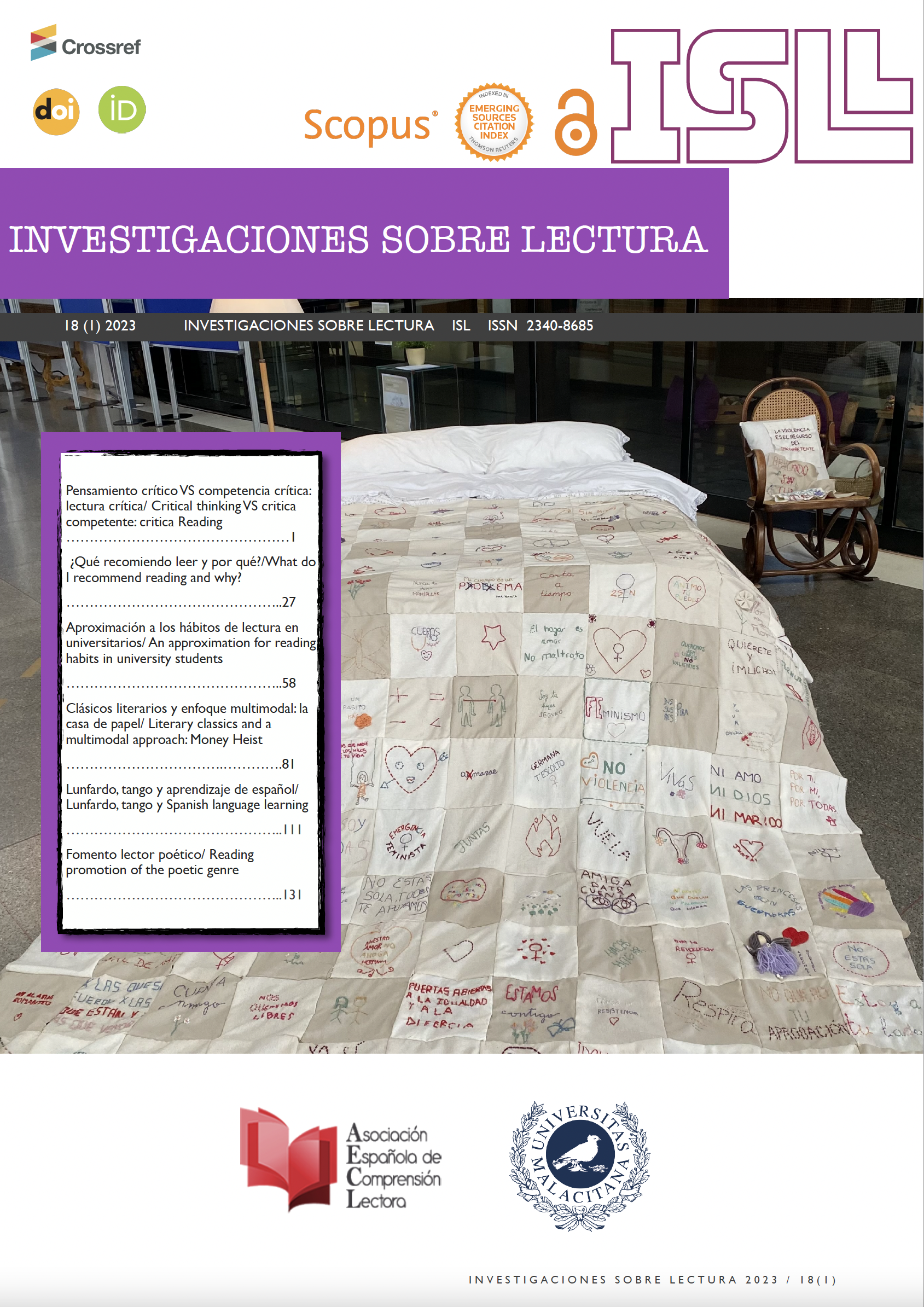




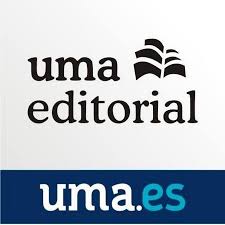
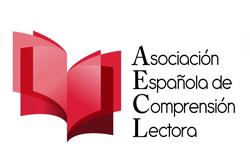
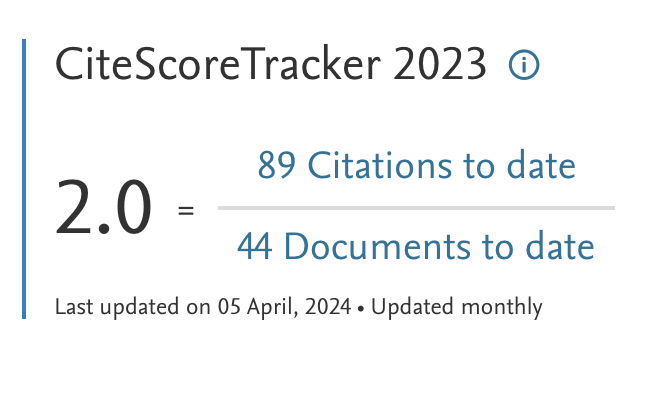
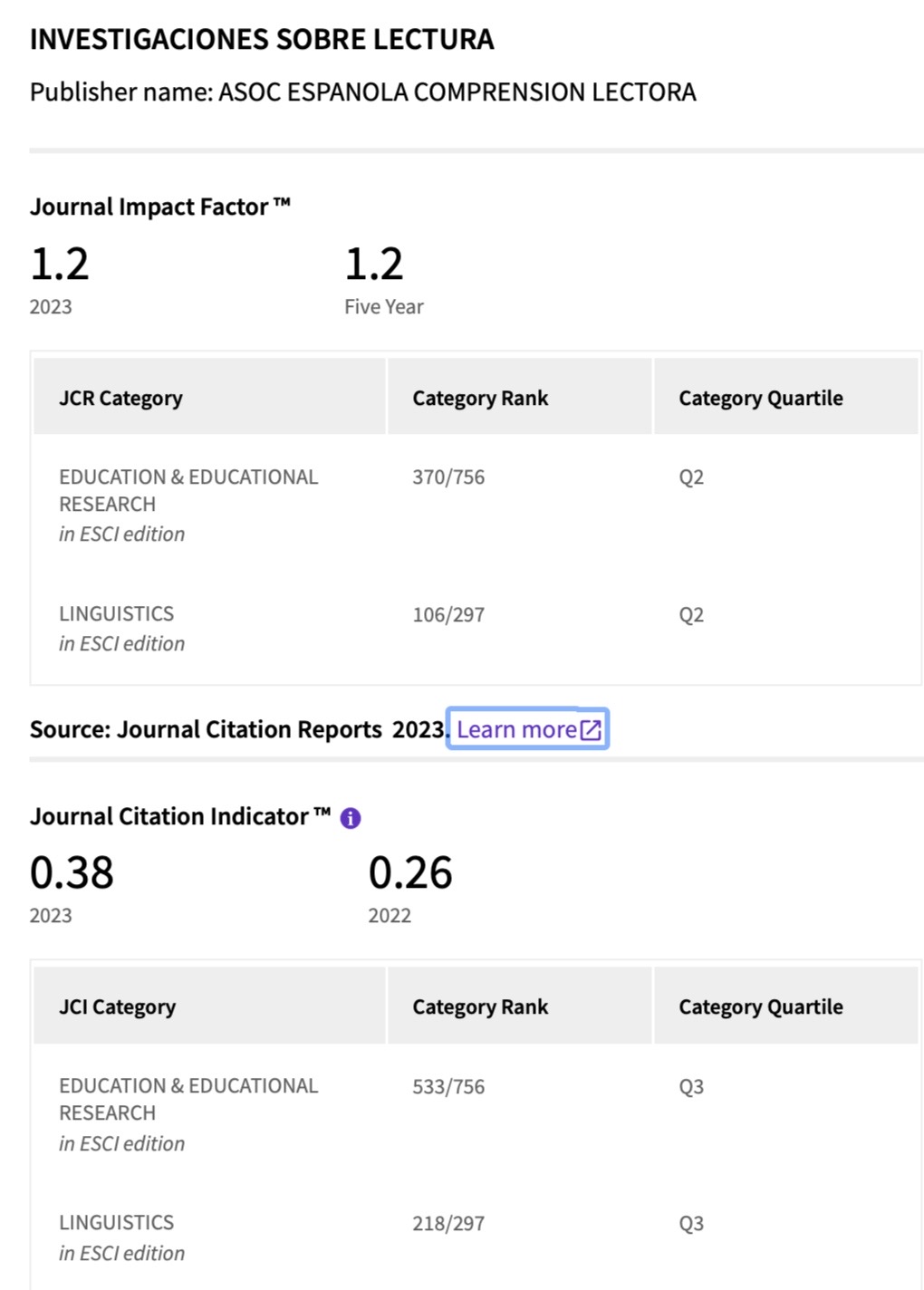
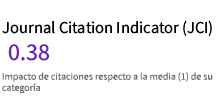
31.png)









